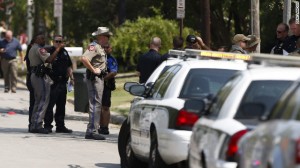Wednesday’s child may be full of woe but Wednesday’s parent can substitute action for anxiety. Each Wednesday Wendy and I will provide parent tips to get and keep your student on the college track. It’s never too late or too early to start!
Wednesday’s Parent will give twice the info and double the blog posts on critical parenting issues by clicking on the link at the end of the article from www.pocsmom.com to www.parentingforcollege.com and vice versa.
This post is about how parents can convey the importance of academics to prepare their child for college:
____________________
Sign up for my FREE parent tips email and get my FREE Ebook on college financing!
 Teaching safety begins when your child begins to walk and touch things. “Watch out it’s hot!” “Be careful, you could hurt yourself.” “Look both ways before you cross the street.” When your kids go off to college you worry about their safety. Why? Because you won’t be there to protect them and see that they stay safe.
Teaching safety begins when your child begins to walk and touch things. “Watch out it’s hot!” “Be careful, you could hurt yourself.” “Look both ways before you cross the street.” When your kids go off to college you worry about their safety. Why? Because you won’t be there to protect them and see that they stay safe.
Apart from an act of random violence or the actions of a psychotic shooter, parents can train their kids through the stages of life to make wise choices to assure their safety when they leave for college. It’s never too late, or too early to start.
Avoid contact with strangers
This danger has taken on a whole new level with the advent of social media. Most kids know that they shouldn’t talk to strangers in real life; but have you taught them to avoid stranger contact online? It’s easy online for predators to build a relationship with a child and get them to trust them. Then, the next step is to coerce them to meet in person. Before your kid leaves for college, make it perfectly clear that this type of behavior is dangerous. Explain the dangers and use real stories if you must—it may seem harsh at first but until they see this is possible, they may not believe you.
Use the buddy system
Grade school, middle school, high school, and college—train your kids to use the buddy system. Teach them to never walk anywhere alone, go to a party alone, go to a mall alone, or anywhere they could potentially be unsafe. Remember Natalie Holloway? She might still be alive if she hadn’t broken this rule. This is a tough lesson to swallow and many adults don’t practice this safety tip. But in this world, being alone in any situation can put you in a place where danger is imminent.
Pay attention to your surroundings
Teach your kids to notice anything out of the ordinary. We all get that “gut” feeling when things just don’t seem right. They will know when something is amiss. Is there a car that doesn’t belong? Do they see someone that shouldn’t be where they are, like an adult hanging around a playground alone watching kids? Are there guys hanging around that make your daughters feel threatened? This one skill in itself could ensure their safety.
Follow the rules
We all teach our kids to follow the rules. It’s a basic tenant of growing up. Stand in line. Take your turn. Share with others. Do what your teacher tells you to do. When you hear the fire alarms walk calmly out of the building and stay with your teacher. But this learned safety tactic can also help them even more when they go to college. Rules are put in place to protect them on and off campus. If they learn this lesson early on they will carry it with them to college where their safety might be compromised.
Don’t make decisions that compromise your safety
Texting and driving have become a hot topic lately. When your teenager takes the wheel you nag and nag about not texting while driving. This is a decision that could cost them their life. Decisions become even more critical in college; especially in regards to drinking and driving, underage drinking, hooking up with strangers and walking around alone late at night. Making the wrong decision could mean the difference between having a good time, ending up in jail, or worse—dead. Scary stuff for parents. It should be just as scary for your kids.
Get help if you need it
Adults often overlook this simple lesson. But so many times, if we had just asked for help, outcomes might have been different. Teach your kids to always be comfortable asking for help. It won’t only translate well into all areas of their lives, but it will help assure they know to ask for help if they feel threatened or in danger.
With all the dangers in the world today, parents are even more concerned about the safety of their kids. If you teach them when they are young, they will carry those lessons with them to college.
Read POCSMom’s advice about putting safety first.

